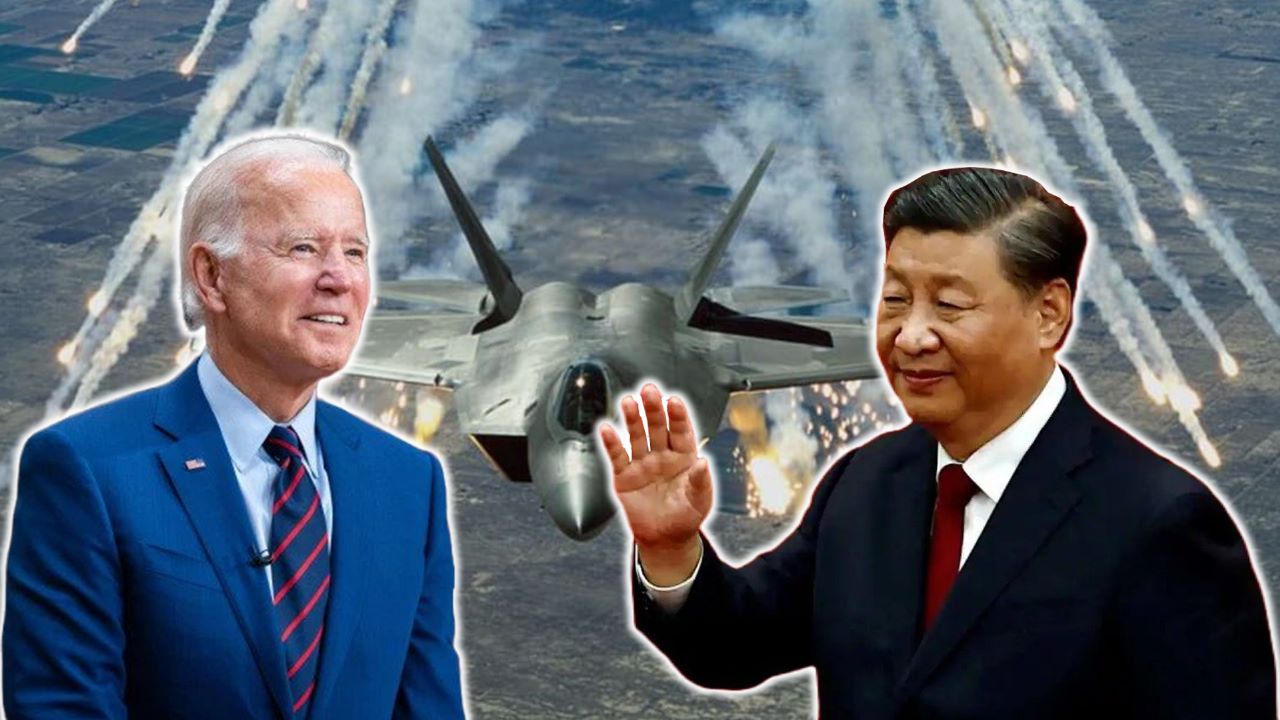In a major blow to the US drone manufacturing sector, Skydio, the country’s largest drone manufacturer and a key supplier to Ukraine’s military, is grappling with a critical supply chain crisis following recent sanctions by Beijing.
The Chinese sanctions, imposed on October 11, prohibit Chinese entities from supplying vital components, including batteries. This development has prompted Skydio to urgently seek alternative suppliers to sustain its operations.
The Financial Times, citing sources, reported that the sanctions have left Skydio scrambling to find new partners while intensifying concerns among American officials regarding potential disruptions in US supply chains.
The implications of this crisis are particularly severe given the ongoing support for Ukraine in its conflict with Russia, where Skydio’s drones have played a role in intelligence gathering and reconnaissance missions.
The report added that in a bid to navigate this challenging landscape, Skydio’s CEO, Adam Bry, met US Deputy Secretary of State Kurt Campbell and engaged in discussions with senior White House officials.
During these meetings, Bry underscored the urgency of the situation and the need for governmental support in countering the sanctions.
According to Bry in a note to customers, “This is a clarifying moment for the drone industry.” The sanctions represent a strategic maneuver by China that could significantly undermine the competitive edge of US drone manufacturers and deepen global reliance on Chinese suppliers.
Bry cautioned that this is an attempt to eliminate leading American drone companies, raising alarms within the US government regarding the implications for national security.
The crisis facing Skydio also highlights the vulnerabilities of US firms that depend on Chinese manufacturing and the increasing trepidation among foreign businesses about the potential repercussions of China’s security laws, which have been leveraged to detain local employees and execute corporate raids.
On October 30, Skydio informed its customers that it was limiting the number of batteries provided with its drones due to China’s recent actions. It stated that new suppliers were not expected to be available until spring.
Skydio has been in the spotlight for its contributions to Ukraine’s military efforts, having supplied over 1,000 drones utilized for intelligence-gathering and documenting Russian war crimes.
However, earlier reports indicate that these drones’ performance on the front lines has been less than stellar. The Wall Street Journal noted that in April, Skydio’s drones flew off course and were lost due to Russia’s electronic warfare capabilities.
Skydio subsequently began working with Ukrainian authorities to improve its products. As a result, the company’s newest model, the X10, successfully underwent Ukrainian electronic warfare testing, demonstrating greater resistance to jamming efforts. Reports indicate that Kyiv is interested in procuring thousands of these advanced drones.

China Strikes Back
China’s sanctions against several American companies, including the private drone manufacturer Skydio, was apparently a response to the US government’s recent approval of the sale of attack drones to Taiwan. This move also follows Skydio’s recent contract with Taiwan’s fire agency.
Over the past few months, China has intensified its sanctions against American companies that it perceives as contributing to military support for Taiwan. In September, Beijing targeted nine US defense firms, holding them accountable for their sales of military equipment to Taiwan.
The firms affected by these sanctions include Sierra Nevada Corporation, Stick Rudder Enterprises, Cubic Corporation, S3 Aerospace, TCOM Ltd Partnership, TextOre, Planate Management Group, ACT1 Federal, and Exovera.
However, Skydio’s timing of the sanctions is particularly challenging. The restrictions were implemented just as the company was attempting to find alternative suppliers for critical components.
Moreover, the Chinese government seems to be taking the matter seriously. Reports indicate that Chinese officials visited Skydio’s suppliers, including Dongguan Poweramp—a subsidiary of Japan’s TDK that manufactures drone batteries—and urged them to cut ties with the US firm. This direct intervention highlights the lengths to which China is willing to go to protect its interests.
In response to the sanctions, Skydio is actively seeking partnerships with companies in Asia, including those in Taiwan. US officials have apparently reached out to Asian allies to discuss strategies to assist Skydio during this challenging period.
The company has also initiated discussions with Taiwan’s Vice President, Hsiao Bi-khim, to explore potential avenues for support.
Another aspect to consider is Skydio’s competition with DJI, the Chinese drone manufacturing giant, in the expansive global drone market.
In fact, the sanctions imposed on Skydio come as Congress is deliberating legislation designed to restrict the use of drones produced by DJI, a Chinese firm that holds a dominant position in the international commercial drone sector.
This legislative effort is part of a larger initiative referred to as “China Week,” which aims to curtail the influence of Chinese technology within the United States. Notable measures include a prohibition on the US Department of Homeland Security from using batteries manufactured by six different Chinese companies.
A US official admitted that Skydio may have become a target of Beijing because of its competitive position against DJI.
“We suspect Skydio was targeted by Beijing because it is likely seen as a competitor to DJI,” said a US official. “If there is a silver lining, we can use this episode to accelerate our work to diversify drone supply chains away from . . . China.”
China’s Sanctions Against Skydio Could Pose Challenges For India
As the tit-for-tat sanctions war between the United States and China continues, the recent development could have implications for India, a country that has proactively taken steps to curb the use of Chinese components in military drones.
In September, reports revealed that the Indian Army placed an order for nearly 700 Trinetra drones from AeroArc, an Indian defense technology firm. The contract aims to enhance India’s surveillance capabilities, particularly in the forested regions of Jammu and Kashmir and high-altitude areas along the northern border.
However, the Trinetra drone is based on a drone developed by the American company Skydio. According to AeroArc, the Trinetra drone has been tailored to suit India’s unique operational requirements, describing it as both “indigenous and Indianized.”
AeroArc said that substantial components of the drone are sourced from within India to make it resilient in the country’s extreme climates, which range from -40 degrees Celsius in mountainous areas to 55 degrees Celsius in desert regions.
The company mentioned that Trinetra’s design addresses India’s geographical challenges, operating effectively at altitudes where few countries typically require drone functionality.
However, despite these assurances, it remains highly likely that the Trinetra’s battery may still be sourced from China, as the original manufacturer, Skydio, currently relies on Chinese suppliers for this critical component.
Skydio is now attempting to secure alternative battery suppliers but does not expect replacements to become available until spring.

This comes as India’s Defense Ministry has implemented strict policies to eliminate Chinese parts from its defense equipment, but these new challenges may complicate India’s efforts toward technological self-reliance.
India’s Ministry of Defense (MoD) has also recently reinforced its stance against Chinese components in military drones. The MoD has taken proactive steps to curtail Chinese influence in India’s defense ecosystem, instructing domestic manufacturers to phase out these components entirely.
On June 25, the Department of Defence Production (DDP) issued a formal advisory to key industry bodies, including FICCI, Assocham, and the Society of Indian Defence Manufacturers (SIDM), urging them to “sensitize” and “caution” affiliated companies about the use of Chinese-made parts in defense equipment.
This stance reflects India’s increasing concerns about national security threats posed by Chinese-made components. Intelligence agencies have highlighted instances where domestic drone manufacturers supplying to India’s armed forces incorporated Chinese electrical and other critical parts.
The MoD has already suspended a 200-drone order from Chennai-based Dhaksha Unmanned Systems, one of four homegrown manufacturers flagged for using Chinese components.
EurAsian Times has reached out to AeroArc for comments, and this story will be updated when further information is available.
- Contact the author at ashishmichel(at)gmail.com
- Follow EurAsian Times on Google News




